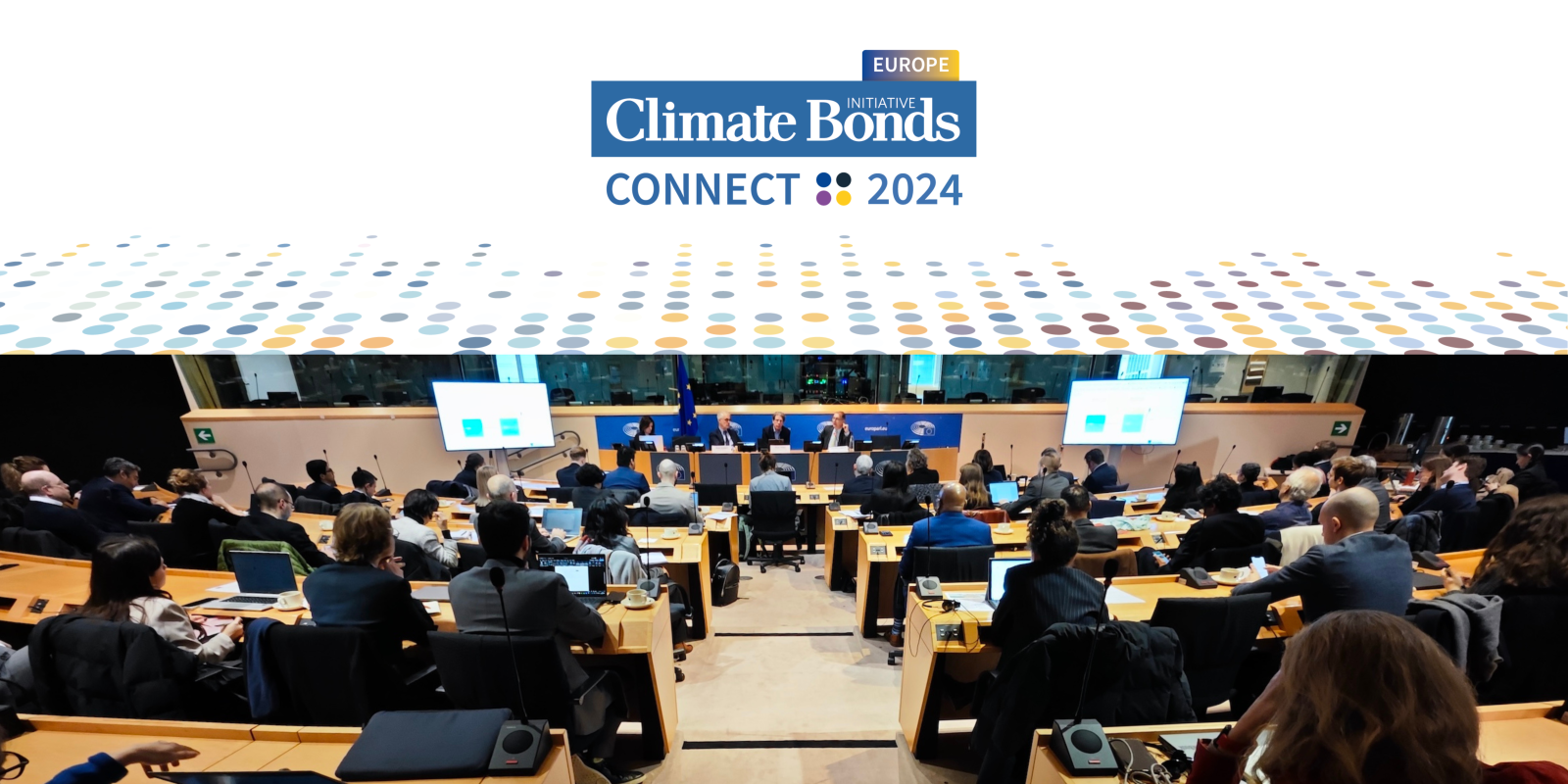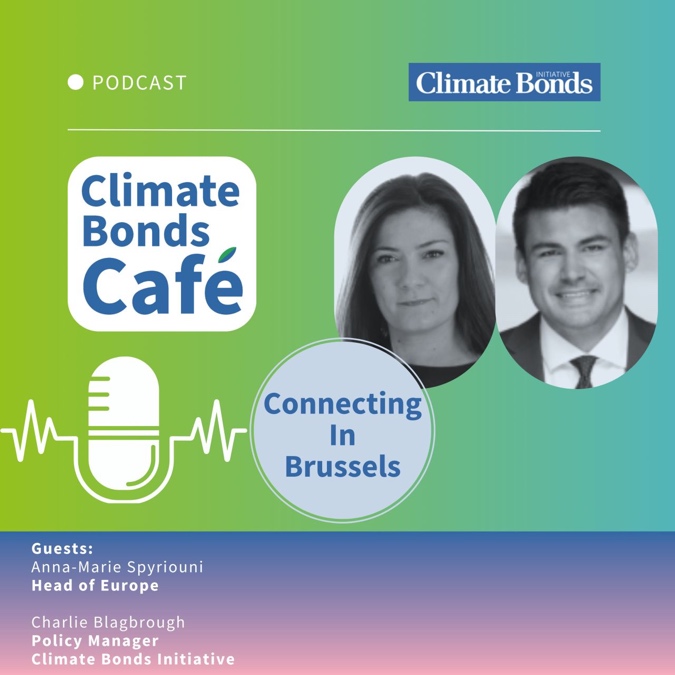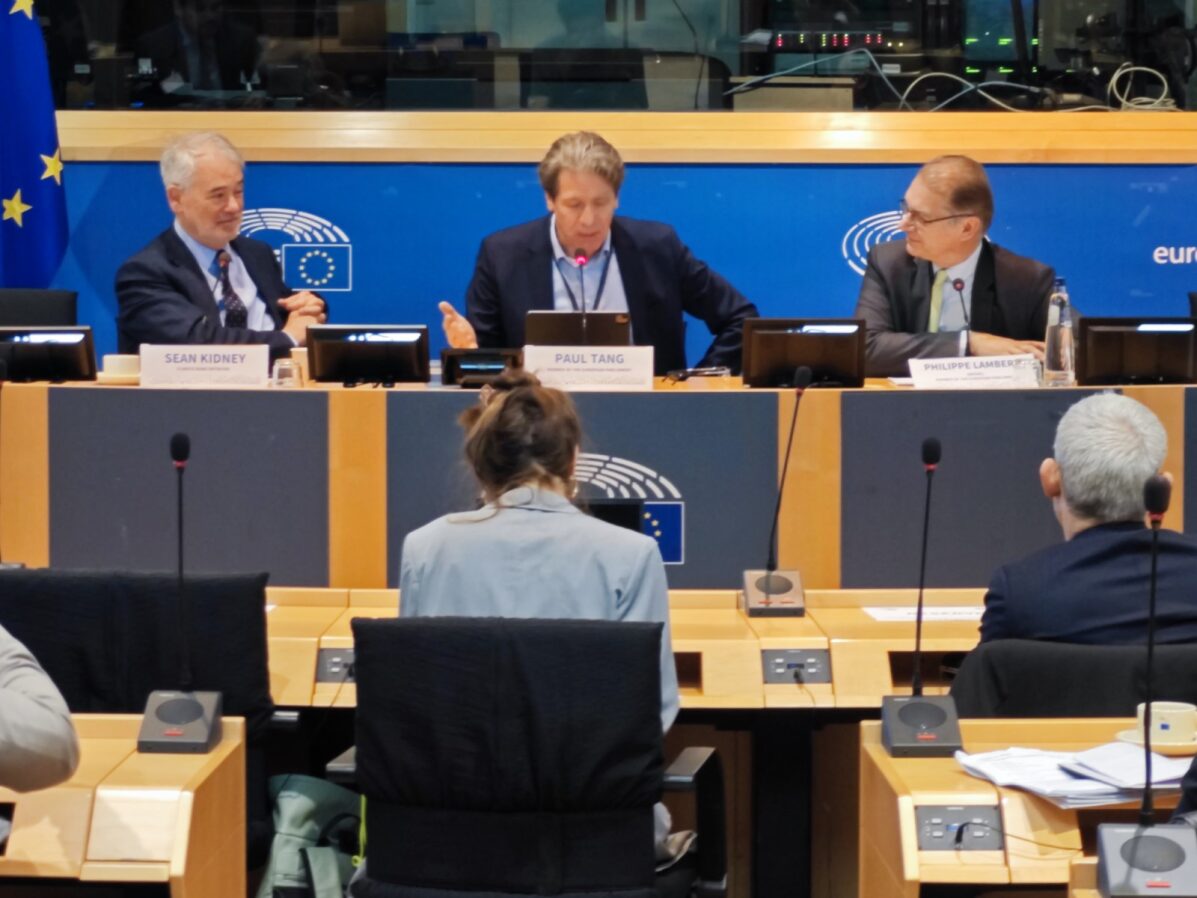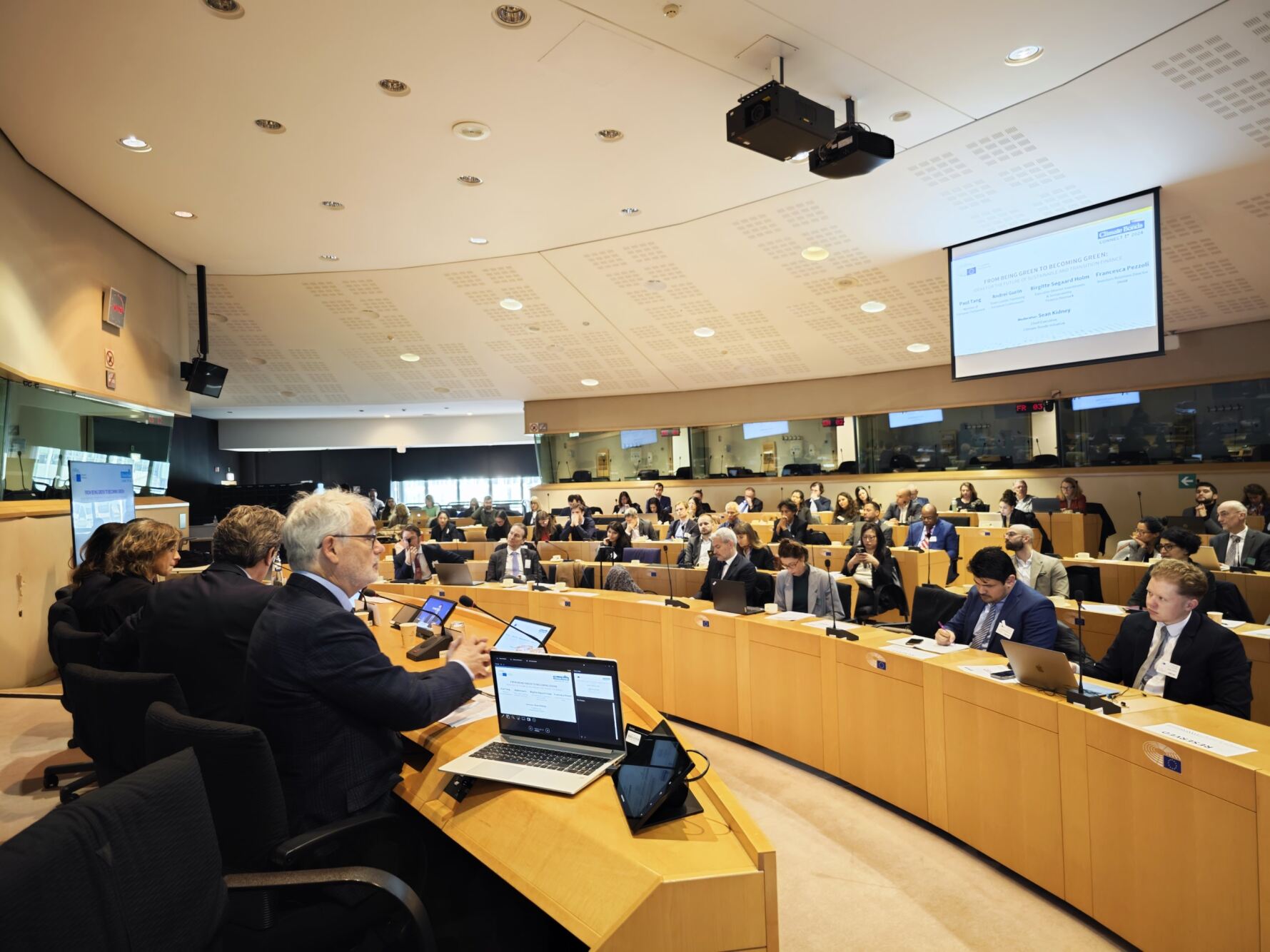
The journey toward net zero in Europe has already begun with a host of EU sustainable finance regulations and policies – we are on the right track. The question now is, can we move fast enough?
This week, the MEP Paul Tang hosted Climate Bonds Connect 2024 in Brussels at the European Parliament. The event brought together sustainable finance leaders, industry experts, and policymakers to discuss how Europe can meet the challenge of climate change and transition to a net zero future.
The morning session meeting was the first CONNECT event in Europe, and it reaffirmed that the goal must be to become green and meet 2030 and 2040 emissions targets. Climate Bonds CEO Sean Kidney rallied the opening session. “Transitioning to economies that create jobs and futures that are low carbon, that is what today is about.”
 Climate Bonds Café
Climate Bonds Café
Catch up with Climate Bonds’ Head of Europe Anna-Maria Spyriouni and Policy Manager Charlie Blagbrough in the latest Climate Bonds’ Café, where they discuss how sustainable finance and sound policy can mobilise the EU’s transition to a net zero future.
MEP Paul Tang opened the day with a strong appeal for action and with Sean he was joined by Philippe Lamberts, President of the Greens discussing the challenge ahead for Europe in reaching the continent’s 2050 decarbonisation targets. USD 40 trillion of investment is needed to meet the continent’s 2050 targets, though the good news is that 75% of this investment is already planned. The goal is clear — a net zero Europe by 2050. The only question now is, can we move fast enough to get there?
Phillipe Lamberts, a Member of the European Parliament, said that addressing the climate issue in Europe “is a no-brainer for macroeconomic policy for years to come.” Mobilising the capital to make that transition happen, he said, is crucial.
The first panel of the day was titled ‘From being green to becoming Green: Ideas for the future of sustainable finance’. This panel featured Andrei Gurin of DG Fisma, European Commission, who emphasised the need to scale up sustainable finance in Europe. “Neither private finance nor public finance alone is not enough,” he said. Ensuring both private and public finance interact to meet the needs of the transition is the key to success.
SNAM, a company specialising in the transportation of natural gas, is on a journey to transition to a low-carbon future. Just days before the event, SNAM launched 1.5 billion euros of sustainable financing in dual tranche: a 500-million-euro green bond and a 1 billion-euro Sustainability-Linked Bond (SLB).
Francesca Pezzoli, SNAM’s Investor Relations Director joined the panel to discuss how new sustainable finance tools can mobilise companies’ transitions to net zero. She described that the transaction is in line with SNAM’s commitment to make sustainability a key role in its strategy which includes, among others, a carbon neutrality target by 2040, as well as the further development of its energy transition businesses. “We try to prepare our infrastructure for the future,” she said, “and we believe we can play a larger role in the transition going forward.”
The sense that we are on the cusp of change as we look to the challenge to come was felt firmly throughout the panel. Birgitte Sogaard Holm, Executive Director of Investments & Sustainability, Finance Denmark said “I don’t believe everyone has all the silver bullets today, but I hope everyone is ready to get to work on a sustainable future.”
“We’ve started a revolution,” Sean added. “Never before has humanity had to tackle challenges of this magnitude.”
There is a huge potential for European savings to get to work on climate, the panel agreed.
In Denmark loans for electric cars rose more than 75% in 2022, although it was remarked that it is still unclear if they qualify as green in a regulatory context.
Birgitte declared “It’s important to unlock the potential of the savings of European households by making sustainable investing clear and simple.” Making sustainable financial products an easy and obvious choice for consumers would help scale climate investment.
Sustainable finance, Sean Kidney added, is like an electric car. “Its engineering isn’t easy to understand, but everyone must be able to press the button and drive it.”
Sean was joined by Nathaniel Arnold, IMF’s Deputy Representative to the EU, to discuss what is needed to mainstream climate change into economic analysis and policies. The IMF has mainstreamed climate thinking in its work over the last decade. They discussed how scaling low-carbon technologies can help developing countries leapfrog a period of getting locked into fossil fuel reliance. Among the other key points, there needs to be a greater role for the EU in cross-border infrastructure, developing projects that benefit entire regions, regardless of borders and boundaries.
Laying a green foundation: Transitioning the built environment in Europe
Aishwarya Sankar, described the Climate Bonds Building Criteria, which lays out guidelines for credible investments in the transition to a sustainable built environment. Buildings account for around 40% of all global emissions globally, and the International Energy Agency (IEA) highlights that the building sector is behind in meeting the performance targets required to keep global temperature rise at or below 1.5°C. Early and rapid investment in the sector is critical to meet these performance targets. Luckily, the technology already exists in the sector to rapidly decarbonise new and refurbished building stock.
This led to the final panel: ‘Beyond 2024: Opportunities in Transition in the Building Sector.’
Peter Sweatman of Climate Strategy and Partners put into perspective how much of the continent’s wealth is buildings: half of the EU’s wealth is stored in real estate, more than in capital markets, and 71% of EU residents own their own homes. Aurelie Beauvais, Managing Director of Euro Heat and Power, forewarned of missing opportunities that lay in the continent’s plentiful sustainable resources, and how they can help heat homes across Europe. “If we don’t tap into them,” she said, “we may have stranded building on the one hand and stranded resources on the other.”
Luca Bertalot, Secretary-General European Mortgage Federation, discussed the power of mortgages, which offer a huge way to leverage people’s money and realise hopes of sanctuary and security for families across Europe. By focusing on a sustainable built environment, he said, mortgages can be used to write sustainability into our domestic lives, building more resilient, prosperous, and sustainable societies.

Climate Bonds Connect 2024 continues next week in Mumbai, where on 23 February Climate Bonds will join MUFG to discuss India’s transition to net zero. Learn more about Climate Bonds Connect 2024 at climatebonds.net/conference
